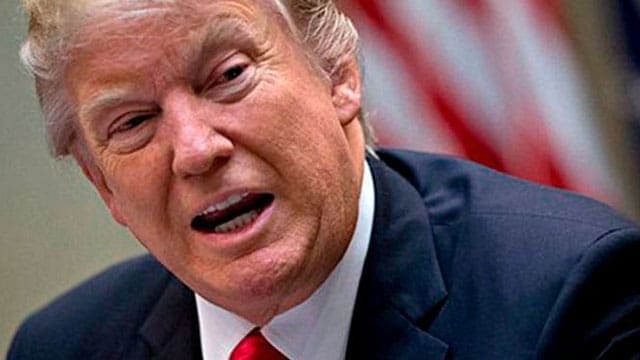Blind alignment with Trump’s policies will cost Canada dearly. We must chart a course to withstand U.S. political instability

For interview requests, click here
Since Nov. 6, when it became clear that Donald Trump had won the U.S. presidency for a second time, Canadians have been swamped by hot takes about what it could mean for us. The speculation has been near constant, to the point of feeding panic.
Will Trump raise tariffs on Canadian exports? Will we see hundreds of people fleeing north to avoid a crackdown on migrants in the U.S.? What will Trump say or do about Canadian defence spending, the digital services tax, or dairy supply management? Etc., etc.
Deputy Prime Minister Chrystia Freeland reassured us that “Canada will be absolutely fine.” Canada is more than a neighbour; we’re a “strategic partner” of the U.S., claimed Industry Minister François-Phillippe Champagne, who boasted that Trump’s people are responding to his texts, “So, this is good.”
“Canada is aligned with the U.S. already, and we’re going to be able to do good things together,” said Prime Minister Justin Trudeau.
 |
| Recommended |
| Key takeaways from the American election
|
| Three things business leaders could learn from Donald Trump
|
| What does Trump’s win mean for Canada’s left-wing parties?
|
Let’s be clear. In no universe will Canada – or anyone else – be “absolutely fine” after Trump is officially installed in January. Freeland doesn’t seem to believe this herself. If she did, she wouldn’t be throwing President Claudia Sheinbaum under the bus by claiming Mexico is not as enthusiastic as Canada about shutting Chinese investment out of North America.
Freeland’s comments, which parroted Ontario Premier Doug Ford’s electioneering call to remove Mexico from the renegotiated Canada-U.S.-Mexico Agreement (CUSMA), make Canada look panicked and defenceless, desperate for a “Great Work!” sticker from Trump.
We would be far better off adopting a position of strategic differentiation rather than knee-jerk alignment with Trump’s agenda. This is not what Canada’s business elite would like to see, but it’s the soundest long-term strategy for dealing with political instability in Washington.
Differentiation is a business term that feels right under the circumstances, what with one CEO in the White House and another, Elon Musk, tasked with downsizing government spending by trillions of dollars. It means capitalizing on the uniqueness of your product or brand against those of the competition.
For instance, in 2016, not long after renegotiating NAFTA – on Trump’s terms – the Trudeau government found itself competing for investment with the Biden administration’s trillion-dollar tax incentives for green infrastructure and manufacturing. Canada’s copycat strategy paid off in some ways for Canada’s important automotive sector, but at a significant cost to the government.
Now Trump is back with an economic plan that may compromise these positive investments in Canada’s electric vehicle supply chain. He wants to scrap EV incentives, cut corporate taxes, deregulate health and safety rules, and “drill, baby, drill.” Canada’s business lobbies are urging the Trudeau government to follow Trump’s lead.
But more than that, they want Trudeau to unilaterally disarm any policy that Trump may now, or at some future date, find irritating. These include Canada’s digital services tax on tax-dodging internet firms and Canada’s dairy supply management system.
While the threat of U.S. tax cuts and tariffs to Canadian jobs is real, Canada cannot possibly compete in another race to the bottom. What’s more, Trump is extremely unpopular in Canada. It would be hazardous for any government to be seen doing Trump’s bidding out of fear and panic.
What’s the solution? A policy of strategic differentiation would acknowledge Canada’s present economic dependency on the U.S. while taking gradual steps to lessen it and the threat of unilateral U.S. trade actions.
Such a policy would re-engage the world realistically in a way that acknowledges multipolarity and the rise of regional powers while committing far more resources to the financial and development needs of the Global South.
If Trump defunds green infrastructure projects and floods markets with cheap oil and gas, Canada should refine its sustainable jobs strategy to support domestic manufacturing, for example, with Buy Canadian preferences on public energy and transit projects.
Where Trump and Elon Musk hollow out health care and education, we expand both. This would lower the cost of living and create thousands of jobs while enticing companies to set up in Canada based on quality of life, not low taxes.
Canada needs to prepare, not panic, for Trump – but also for what comes after Trump. We can do that by charting an independent, forward-looking, internationalist alternative that can withstand any U.S. administration.
Stuart Trew is a senior researcher at the Canadian Centre for Policy Alternatives, where he directs the centre’s Trade and Investment Research Project.
Explore more on Donald Trump, U.S. politics, Canadian economy
The views, opinions, and positions expressed by our columnists and contributors are solely their own and do not necessarily reflect those of our publication.
© Troy Media
Troy Media is committed to empowering Canadian community news outlets by providing independent, insightful analysis and commentary. Our mission is to support local media in building an informed and engaged public by delivering reliable content that strengthens community connections, enriches national conversations, and helps Canadians learn from and understand each other better.


